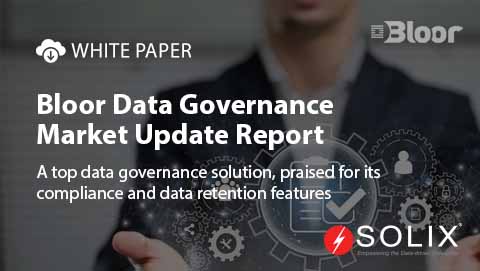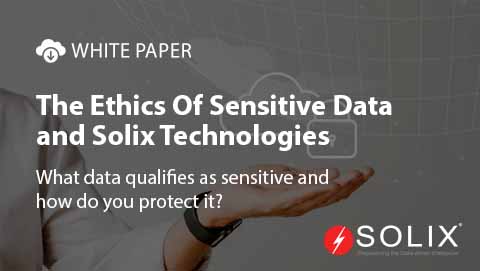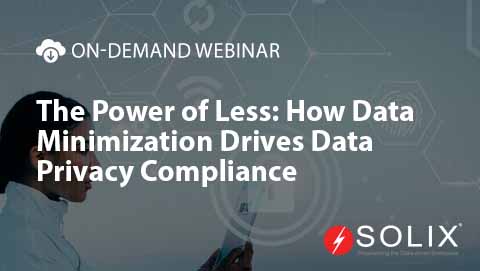Data Steward Vs Data Governance
What is Data Steward vs Data Governance and why does it matter? Data Steward vs Data Governance management is a critical aspect of any organizations data strategy. Data stewards are responsible for ensuring that data is accurate, consistent, and secure, while data governance involves the overall management of data assets and policies. It is essential to have a clear understanding of the differences between the two and why they are crucial for business success.
A real-world scenario: Transforming Data Steward vs Data Governance for success. Imagine for a second your in a scenario where a company, lets call them Acme Corporation, is struggling with data stewardship and governance issues. Data is scattered across various systems, making it challenging to maintain data quality and security. Without a strong data governance framework in place, the company is at risk of non-compliance with regulations and facing costly data breaches.
How Solix saves money and time on Data Steward vs Data Governance. This is where Solix Technologies comes in. By implementing Solix’s comprehensive data governance solutions, Acme Corporation can streamline their data management processes, improve data quality, and ensure compliance with regulations. With Solix’s tools for data policies and standards, data quality management, metadata management, data security, and compliance, Acme Corporation can save time and money while maximizing the value of their data assets.
Cost savings from legacy application decommissioning can be as easy as walking through the data center and picking up one-hundred-dollar bills. A study was done by the Compliance, Governance, and Oversight Council showed that the average annual cost savings for decommissioning inactive applications were $40,000 and that for larger, enterprise-class applications, the annual savings could exceed $120,000.
- Database Archiving: This solution moves older, less frequently accessed data to low-cost cloud object storage, improving application performance and ensuring compliance through Information Lifecycle Management (ILM) policies.
- File Archiving: Supporting all file types, including office documents, PDFs, images, and videos, this service enables secure and scalable data storage, facilitating data governance and compliance.
- Enterprise Data Lake: A unified repository that allows organizations to store structured, semi-structured, and unstructured data at scale, supporting advanced analytics and business intelligence initiatives.
Data governance in data lakes. Data lakes are large repositories storing vast amounts of structured and unstructured data. Proper governance ensures the data lake is usable, secure, and compliant. Key considerations include:
- Data Ingestion and Classification Schema-on-Read Management: Since data lakes often use a schema-on-read approach, governance must ensure metadata is captured and maintained for seamless analytics. Data Tagging: Automatically tagging and classifying data based on its sensitivity, type, or intended use.
- Metadata and Lineage Metadata Management: Centralized metadata storage helps users understand the content and context of the data in the lake. Data Lineage Tracking: Monitoring the flow of data from source systems into the lake, transformations applied, and its consumption.
- Access Controls and Security Role-Based Access Control (RBAC): Restricting data access based on roles to avoid unauthorized usage. Encrypting data both at rest and in transit to safeguard against breaches. Audit Logs: Capturing user activities to monitor data access and modifications.
- Data Quality in Data Lakes Validation: Implementing checks to ensure data entering the lake meets quality standards. Data Cleansing: Regularly addressing inconsistencies or inaccuracies.
- Governance for Scalability Setting policies for the lifecycle of data, including retention, archiving, and deletion, to manage storage growth efficiently.
By integrating these components, Solix’s data governance framework enables organizations to derive maximum value from their data while minimizing associated risks. Their solutions ensure data quality, integrity, security, and compliance with regulatory requirements, leading to improved decision-making and operational efficiency.
Wind-up, data stewardship and governance are essential for organizations looking to effectively manage their data assets and ensure compliance with regulations. Solix Technologies offers innovative solutions to help companies like Acme Corporation achieve success in their data management efforts. By implementing Solix’s tools and framework, organizations can save money and time while maximizing the value of their data assets. Dont miss out on the opportunity to transform your data management processes with Solix – enter your information on the right to learn more and be entered to win $100! I hope you enjoyed learning.
My goal was to introduce you to ways of handling the questions around Data Steward Vs Data Governance. As you know its not an easy topic but we help fortune 500 companies and small businesses alike save money when it comes to Data Steward Vs Data Governance so please use the form above to reach out to us.




